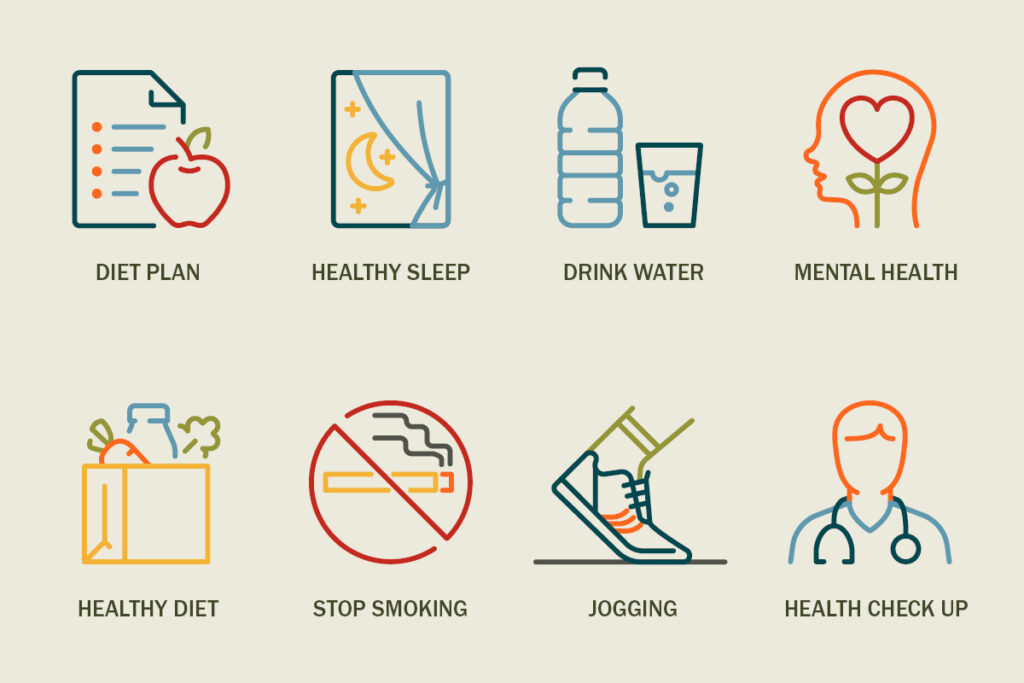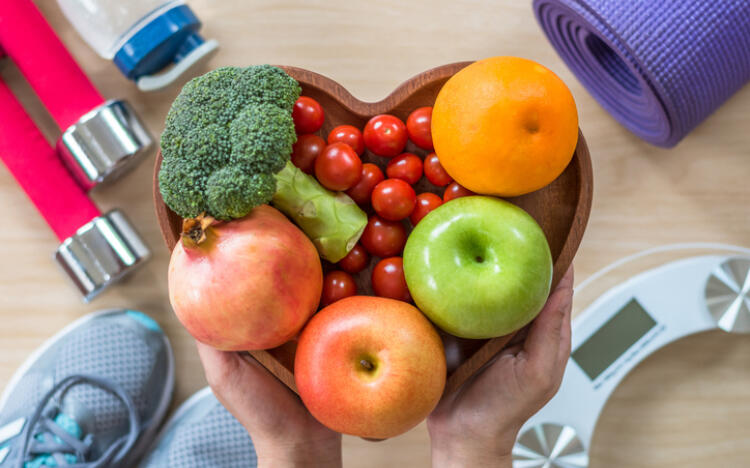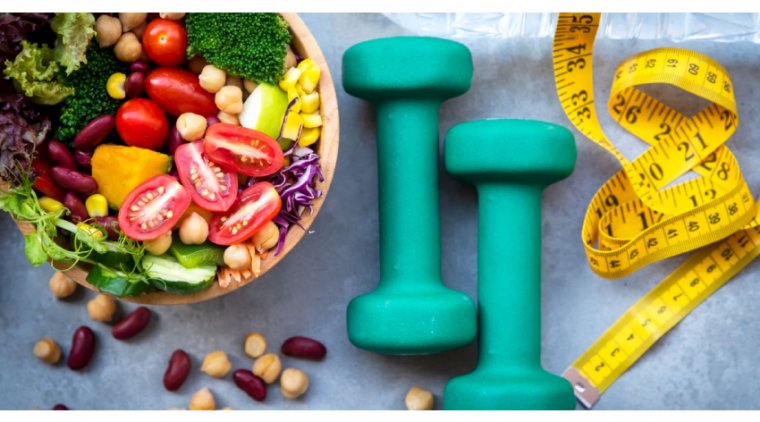Lifestyle Changes for Better Health
In today’s fast-paced world, it can be easy to neglect our health in favor of other priorities. However, taking care of our bodies is crucial for overall well-being and longevity. Making small lifestyle changes can have a significant impact on our health and quality of life. In this article, we will explore some simple yet effective changes you can make to improve your health.
1. Incorporate Regular Exercise
Exercise is essential for maintaining a healthy body and mind. Regular physical activity can help improve cardiovascular health, boost immunity, and reduce the risk of chronic diseases. Aim for at least 30 minutes of moderate exercise most days of the week. This could include activities such as walking, jogging, biking, or yoga. Find an exercise routine that you enjoy and stick to it to reap the benefits.

In addition to regular exercise, incorporating strength training into your routine can help build muscle mass, improve bone density, and increase metabolism. Strength training exercises can be done with bodyweight, free weights, resistance bands, or machines. Consult with a fitness professional to create a personalized workout plan that suits your fitness level and goals.
Lastly, remember to stay hydrated during and after exercise to replenish lost fluids and electrolytes. Proper hydration is essential for optimal performance and recovery. Drink water throughout the day and avoid sugary beverages that can contribute to weight gain and other health issues.
2. Adopt a Balanced Diet

Eating a balanced diet is crucial for fueling your body with essential nutrients and maintaining overall health. Aim to include a variety of fruits, vegetables, whole grains, lean proteins, and healthy fats in your meals. Avoid processed foods, sugary snacks, and excessive amounts of salt and saturated fats.
Consider incorporating more plant-based foods into your diet, such as legumes, nuts, seeds, and whole grains. These foods are rich in vitamins, minerals, fiber, and antioxidants that can help protect against chronic diseases and promote overall well-being. Experiment with new recipes and flavors to keep your meals exciting and nutritious.

In addition to eating a balanced diet, pay attention to portion control and mindful eating. Practice eating slowly, savoring each bite, and listening to your body’s hunger and fullness cues. Avoid eating in front of screens or while distracted, as this can lead to overeating and poor digestion.
3. Get Sufficient Sleep
Getting enough quality sleep is essential for overall health and well-being. Lack of sleep can affect mood, cognitive function, metabolism, immune system, and hormone regulation. Aim for 7-9 hours of uninterrupted sleep each night to allow your body to rest and recharge.
Create a calming bedtime routine to signal to your body that it’s time to wind down and prepare for sleep. This could include activities such as reading, meditating, taking a warm bath, or listening to soothing music. Avoid screens and stimulating activities at least an hour before bedtime to promote relaxation and melatonin production.
If you struggle with falling or staying asleep, consider implementing sleep hygiene practices such as maintaining a consistent sleep schedule, creating a comfortable sleep environment, and limiting caffeine and alcohol intake. Consult with a healthcare professional if you have persistent sleep issues that affect your daily life.
4. Manage Stress Effectively

Chronic stress can have a detrimental impact on physical and mental health. It can weaken the immune system, increase inflammation, and contribute to various health issues such as heart disease, obesity, and anxiety. To combat stress, it’s important to develop healthy coping mechanisms and relaxation techniques.
Practice mindfulness meditation, deep breathing exercises, yoga, tai chi, or other stress-relieving activities to help calm the mind and body. Engage in hobbies and activities that bring you joy and relaxation, such as painting, gardening, listening to music, or spending time in nature. Find ways to disconnect from work and technology to recharge and rejuvenate.
In addition to relaxation techniques, prioritize self-care and set boundaries to protect your mental and emotional well-being. Take breaks when needed, delegate tasks, and ask for support from friends and family. Seek professional help if you feel overwhelmed or unable to manage stress on your own.
5. Stay Hydrated
Proper hydration is essential for overall health and well-being. Water is crucial for maintaining bodily functions, regulating body temperature, flushing out toxins, and supporting digestion. Aim to drink at least 8-10 cups of water per day, more if you are physically active or in hot weather.
In addition to water, consider incorporating herbal teas, infused water, coconut water, or electrolyte drinks into your hydration routine. These beverages can provide additional nutrients, antioxidants, and hydration benefits. Monitor your urine color and thirst levels as indicators of hydration status.
Avoid sugary drinks, energy drinks, and excessive caffeine, as they can contribute to dehydration, weight gain, and other health issues. Limit alcohol consumption, as it can dehydrate the body and impair cognitive function. Make hydration a priority by carrying a reusable water bottle with you throughout the day.
6. Practice Mindful Eating
Mindful eating is a practice that involves paying attention to the sensory experience of eating and listening to your body’s hunger and fullness cues. It can help you develop a healthy relationship with food, improve digestion, and prevent overeating. Focus on enjoying the flavors, textures, and aromas of your meals without distractions.
Engage all your senses while eating, such as smelling the food, tasting each bite, and savoring the flavors. Chew your food slowly and mindfully to aid digestion and allow your body to recognize when it’s full. Avoid eating while distracted or in a rush, as this can lead to mindless eating and poor food choices.
Be aware of emotional eating triggers, such as stress, boredom, or social situations, and find alternative coping mechanisms that don’t involve food. Practice gratitude for the nourishment your meals provide and cultivate a positive attitude towards food and your body. Seek support from a registered dietitian or therapist if you struggle with disordered eating habits.
7. Build Strong Relationships
Developing and maintaining strong relationships with friends, family, and community members is crucial for mental and emotional health. Social connections can provide support, companionship, and a sense of belonging that can improve mood, reduce stress, and enhance overall well-being. Make time for meaningful interactions and prioritize quality time with loved ones.
Engage in activities that strengthen your relationships, such as sharing meals, going for walks, attending events, or volunteering together. Communicate openly and honestly with your loved ones, express gratitude, and show empathy towards their feelings and experiences. Seek help from a therapist or counselor if you struggle with interpersonal relationships or loneliness.
In addition to personal relationships, consider joining social groups, clubs, or community organizations that align with your interests and values. Connect with like-minded individuals who share your passions and goals. Participate in group activities, workshops, or events to expand your social network and cultivate new friendships.
8. Prioritize Mental Health
Mental health is just as important as physical health and should be given the same level of attention and care. Prioritize your mental well-being by practicing self-care, seeking therapy or counseling, and developing healthy coping mechanisms for stress and anxiety. Take time to reflect on your thoughts and emotions, and address any issues that arise.
Engage in activities that bring you joy, relaxation, and a sense of accomplishment. This could include hobbies, creative outlets, exercise, meditation, or spending time in nature. Practice gratitude and mindfulness to cultivate a positive mindset and resilience in the face of challenges. Seek support from mental health professionals if you struggle with mental health issues such as depression, anxiety, or trauma.
Remember that mental health is a journey, and it’s okay to ask for help and take breaks when needed. Practice self-compassion and acceptance of your thoughts and feelings, knowing that you are not alone in your struggles. Prioritize your mental health as you would your physical health, and make self-care a non-negotiable part of your daily routine.
Conclusion
In conclusion, making lifestyle changes for better health is a journey that requires commitment, patience, and self-awareness. By incorporating regular exercise, adopting a balanced diet, getting sufficient sleep, managing stress effectively, staying hydrated, practicing mindful eating, building strong relationships, and prioritizing mental health, you can improve your overall well-being and quality of life. Remember that small changes can lead to significant improvements in your health and happiness. Take the first step towards a healthier lifestyle today and reap the benefits for years to come.
